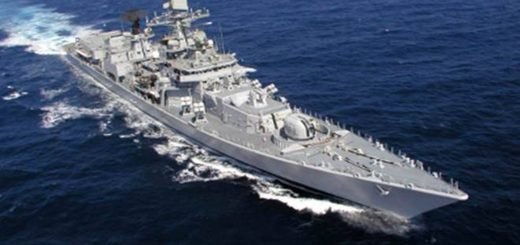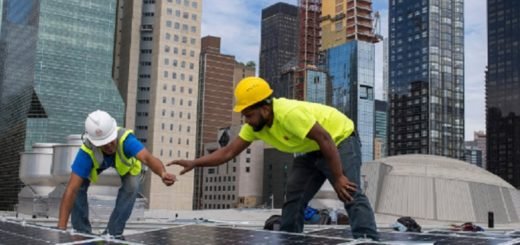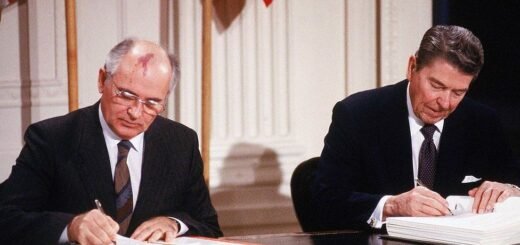The Tehran Summit and Iran’s Regional Ambitions | Middle East Monitor

Rouhani along with Turkish president Erdogan and Russian President Vladimir Putin/IRNA
The recent Russian-Turkish-Iranian summit in Tehran underscored the Islamic Republic’s determination to take an active and central part in the future reconstruction of Syria so as to promote a range of civilian and security interests that are bound to work to Israel’s detriment.
On September 7, the presidents of Russia, Turkey, and Iran met in Tehran in an attempt to reach understandings regarding Syria’s future in general, and the imminent offensive in the Idlib district – the last bastion of anti-Assad regime rebels – in particular. Despite the outward display of unity and the shared desire to exclude Washington from the decision-making process on Syria’s future so as to make the Syrian agenda their exclusive domain, the differences between the three parties were inevitable. What dictated the tone was the attempt by each party to promote its own disparate interests.
Take, for example, the three leaders’ use of the term “terrorist.” While Putin and Rouhani referred to the entire Syrian opposition as terrorists, Erdoğan confined this term to the Kurds and the Sunni jihadist organizations such as Jabhat al-Nusra. Likewise, while Putin’s speech focused on the normalization of the situation and the return of refugees under a UN umbrella, Erdoğan demanded an immediate ceasefire in Idlib to prevent a bloodbath by the Assad regime. For his part, Rouhani devoted his speech to attacking the US and Israel, criticizing the former as an illegal invader of Syria and decrying Israel as an illegitimate entity that inflamed regional tensions and demanding – tongue in cheek – the removal of Israeli forces from the Syrian hemisphere. No less important, the Iranian president expressed the Islamic Republic’s strong desire to see Syria’s reconstruction after the fighting ended.
Viewed from Tehran’s vantage point, cooperation with Russia and Turkey, despite their substantial differences, is a necessary step for realizing its regional ambitions. Keenly aware of Moscow’s centrality in determining Syria’s political, economic, and military agenda, Iran invests considerable effort in persuading the Kremlin to acquiesce in its continued presence in the war-torn country. Furthermore, Russia is not only perceived as a lifeline for Iran’s future presence in Syria but also as an essential component in preserving the 2015 nuclear agreement after the US withdrawal from the treaty. In addition, Tehran puts much effort into raising foreign investment and views China and Russia as important substitutes for the European markets, which are hesitant to challenge the Trump administration’s re-imposed sanctions. It is true that economic factors often put Tehran and Moscow on opposite sides of the divide, such as competition over Syrian reconstruction contracts and in the Asian and Far Eastern energy markets. But Tehran seems well aware of Moscow’s superior position and is unlikely to rock the boat in these respects.
Cooperation with Turkey is similarly necessary for the realization of the Islamic Republic’s regional ambitions. While Ankara and Tehran are at odds over the legitimacy of the Assad regime and compete for leadership of the Muslim world, Turkey offers a vital channel for circumventing the US sanctions. Moreover, Iran places great hopes on Turkey as a natural gas supply route to European markets via the Tabriz-Ankara pipeline. The two states have collaborated in the past over the Kurdish issue, most recently in their joint campaign against the September 2017 referendum on the independence of Iraqi Kurdistan.
As noted above, in his speech at the summit Rouhani stressed Iran’s desire to take an active part in the Syrian reconstruction, something that had already been demonstrated at the late August signing of an agreement by Iranian Defense Minister Amir Khatami and his Syrian counterpart. Why is Tehran prepared to invest billions of dollars in reconstructing Syria at a time when it is undergoing a sharp economic upheaval? The answer has to do with both domestic and strategic considerations.
On the strategic level, Tehran strives to transform Syria into a protectorate, similar to the model it successfully implemented in post-Saddam Iraq and in Lebanon since late 2006. This model comprises four overlapping circles:
- Influence through “soft power.”
- The formation of proxy armed militias from among recruited volunteers both at home and abroad.
- Direct military intervention by the Islamic Revolutionary Guard Corps (IRGC), and, in the Syrian case, by the Iranian army as well.
- The civilian and military reconstruction that enables Tehran to position itself as a supportive factor and, in consequence, to influence the political agenda from within.
Syria’s reconstruction is at the top of Tehran’s list of priorities for the simple reason that this will lead to the establishment of security and intelligence infrastructures that will enable the use of Syrian territory as a front base for Iranian operations.
On the domestic level, Tehran’s interest in the Syrian reconstruction is a corollary of the internal power struggle within the Islamic regime, notably the desire of the IRGC commanders to consolidate their influence on the various aspects of the Iranian national agenda. Dating back to the country’s recovery from the Iran-Iraq War (1980-88), the organization’s penetration of the economic, energy, industry, and agricultural spheres has been deep and pervasive. This is illustrated inter alia by its control of the industrial conglomerate Khatim al-Anbiya (“Seal of the prophets”), which serves as the exclusive concessionaire for most of Iran’s engineering projects – from paving roads to developing oil and gas fields, to constructing dams. Its survival and expansion of influence are the top priorities of the IRGC, which seems to be (justifiably) looking forward to the day when the next Supreme Leader is chosen. It is clear that the wellbeing of ordinary Iranians is not at the top of the organization’s agenda, which is also why large sums of money are diverted from Iran to regional adventures.
Iran’s consolidation in Syria should, therefore, be viewed in the context of its wider regional exertions, especially in those countries bordering on Israel. It is not by chance that Tehran is investing great efforts to establish a land corridor from its border to the Mediterranean Sea. While the IRGC has been forced to scale back some of its activities due to a series of military attacks, some of which were attributed to Israel, this should be seen as a tactical rather than a strategic change.
At present, Iran’s efforts to establish itself in Syria are expressed in an attempt to assimilate into the Syrian army in order to disguise its presence and help preserve the Assad regime. Judging by the Iraqi experience, however, Tehran is likely to incorporate the fighters of its Syria-based proxy Shiite militias into the Syrian civilian fabric, thus tilting the demographic balance between the country’s Sunni and Shiite communities.
All in all, while foreign infiltration of embattled countries is not a new phenomenon in the Middle East (e.g., Egypt’s prolonged Yemen intervention in the 1960s, Syria’s intervention in the Lebanese civil war), the recent Arab upheavals, especially the Syrian civil war, have been exploited by Tehran to advance its ambitions for regional hegemony. This policy directly affects the economic wellbeing of ordinary Iranians, who give little credence to the regime’s attempt to ascribe Iran’s growing economic malaise to external factors. Hence the spreading demonstrations throughout the country over the past few months.
This reality seems to be fully recognized by the IRGC, as evidenced by its massive investment in the formation of a national loyalist army that will work to secure the organization’s influence and advance its interests. This, in turn, means that, in Iranian eyes, the significance of Syria’s reconstruction extends way beyond its economic gains, as it may lay the groundwork for the creation of a military-strategic infrastructure that will serve as a springboard for anti-Israel attacks a la Lebanon.
Dr Doron Itzchakov is a research associate at the Begin-Sadat Center for Strategic Studies and at the Alliance Center for Iranian Studies at Tel Aviv University. This is originally part of BESA Center Perspectives Papers
The views and opinions expressed in this article are those of the authors and do not necessarily reflect the views of The Kootneeti Team



















